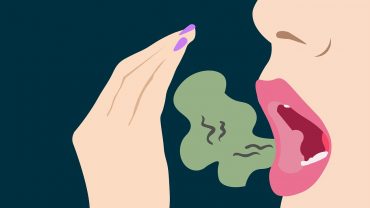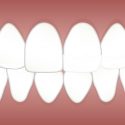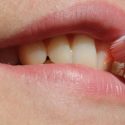The Good And The Bad Of Flossing
There is some controversy these days surrounding the use of dental floss. I know a lot of people have been asking recently – is flossing good or bad? For the past several decades, dentists have advised their patients to brush twice or three times daily and floss once a day to remove plaque and bacteria from between the teeth. Be that as it may, today many dentists and patients are questioning the wisdom of flossing.
In this article, we explore the pros and cons of flossing your teeth and offer some smart alternatives. Read on to learn more.
Is It Really Important To Floss?
Both the American Dental Association (ADA) and the UK’s National Health Service (NHS) agree that it is important remove bits of food and plaque from between the teeth on a regular basis to prevent gum disease and tooth decay. The ADA recommends flossing. Dentists in the NHS tend to recommend use of interdental brushes. Many dentists in both the US and the UK tout the benefits of using a water flosser or water pik.
Can Dental Floss Hurt Your Teeth And Gums?
Dental floss can do a good job of cleaning between your teeth, but if you do it wrong you could damage your teeth and gums. Some people even believe that flossing can cause gaps between the teeth, but this isn’t really true. Aggressive or excessive flossing can lacerate your gums. This will eventually cause your gums to recede, and this will cause gapping between the teeth.
You can also cause damage to your gums by flossing too lightly or by giving up on flossing. If your gums are irritated by plaque, they may bleed when you floss even if you do not lacerate them. Some people take this as a sign they should stop flossing, but this isn’t really true.
How To Clean Between Your Teeth
Instead, you may wish to alternate between floss and a water pik to clean between your teeth more gently and toughen your gums. If you do have gum disease, using a water pik can help because it can wash bacteria out of deep pockets surrounding the root of the tooth. This can help promote healing. If bleeding persists, see your dentist.
Keep in mind that even though a water pik is a good support for floss, it should not take the place of floss because the two work differently. Floss actually scrapes plaque off the surfaces of your teeth. A water pik just rinses the teeth. It has the advantage of stimulating the gums and is very helpful for people who have braces, but it cannot really completely remove stubborn plaque.
Can You Floss Too Much?
You can definitely floss too often, and this can cause wear on your teeth as well as gum sensitivity. It’s best not to floss more than once a day, and using alternatives such as a water pik or an interdental brush can be a very good idea.
According to the British Dental Association (BDA) interdental brushes are more effective than floss at cleaning between teeth, stimulating gums and preventing tartar buildup, which can lead to gingivitis.
Why Is Cleaning Between Your Teeth So Important?
A healthy mouth helps you maintain a healthy body. Tartar and debris between your teeth leads to harmful bacteria in your mouth. Like it or not, you swallow that bacteria all day long! This bacteria can enter the blood-stream and wreak havoc with your internal organs.
Untreated gum disease can lead to complications such as:
- Low testosterone levels
- Increased stroke risk
- Rheumatoid arthritis
- Pancreatic cancer
- Pharyngeal cancer
- Alzheimer’s disease
- Low birth weight
- Preterm babies
- Breast cancer
- Kidney disease
- Prostate disease
- Heart disease
- Pneumonia
- Oral cancer
It can also negatively impact your ability to control your blood sugar levels, which can be very problematic for people with diabetes.
A Consistent Combination Approach Is Best
Good dental hygiene is very important to overall good health. Preventing tartar buildup can help prevent gum disease, tooth decay and many serious problems. To create an effective tooth and gum care routine, be sure to brush your teeth gently for two minutes twice a day.
Use floss, a water pik or an interdental brush to clean between your teeth once a day. Bedtime is the most effective time for this. Make the most of the benefits of these hygiene aids by setting up a rotating schedule to keep your teeth and gums clean and healthy.




